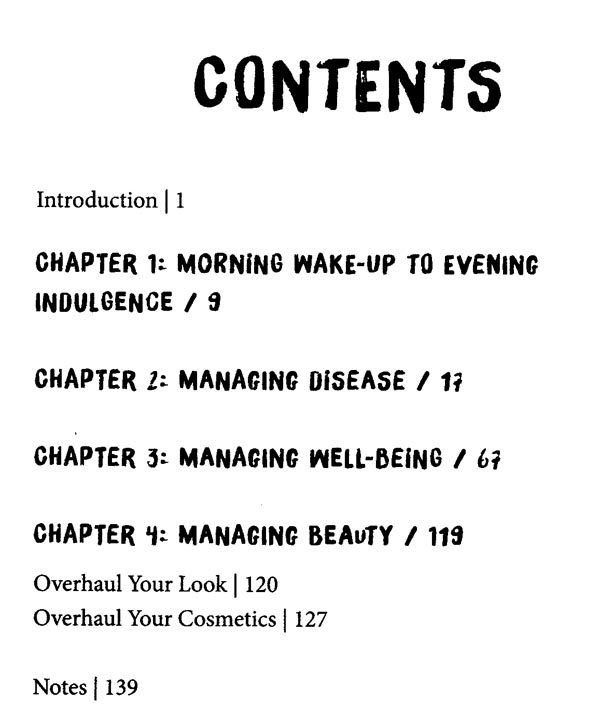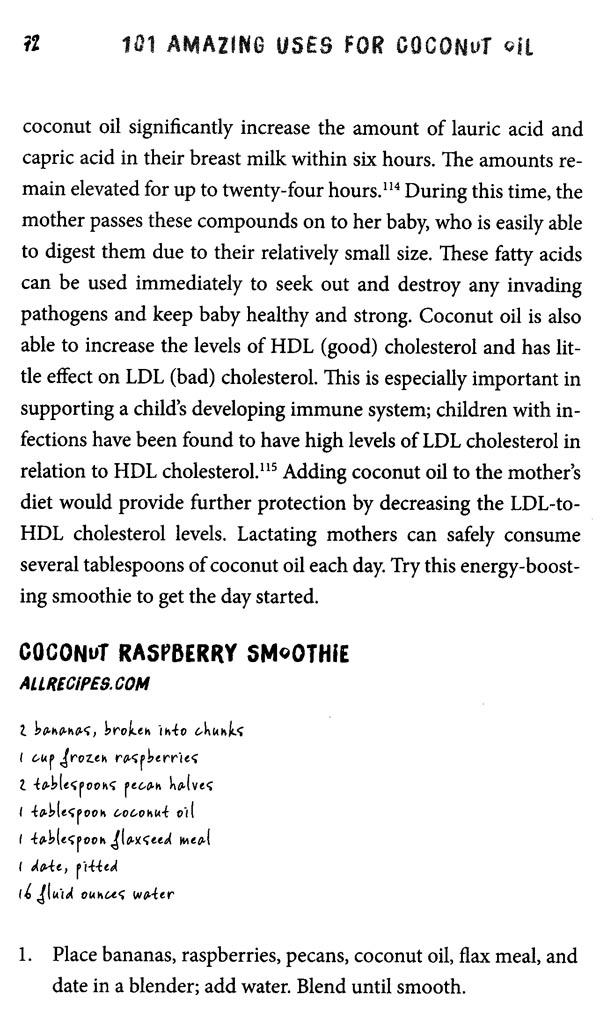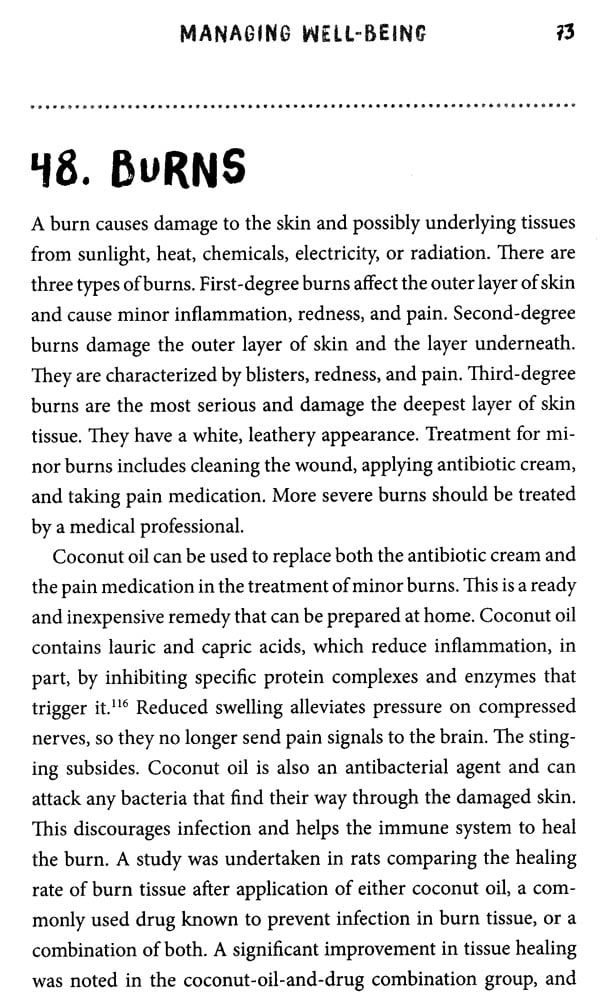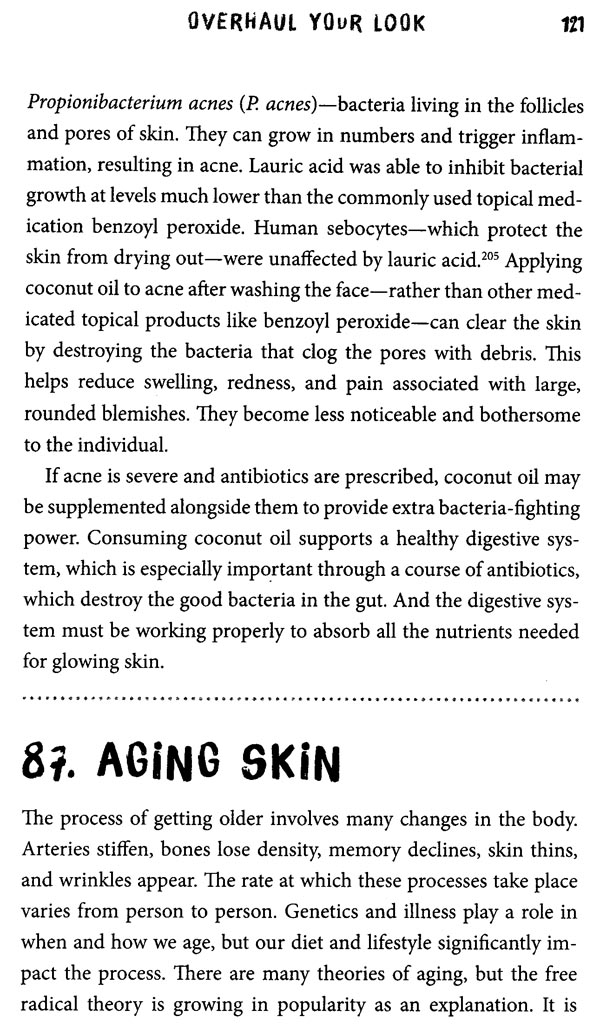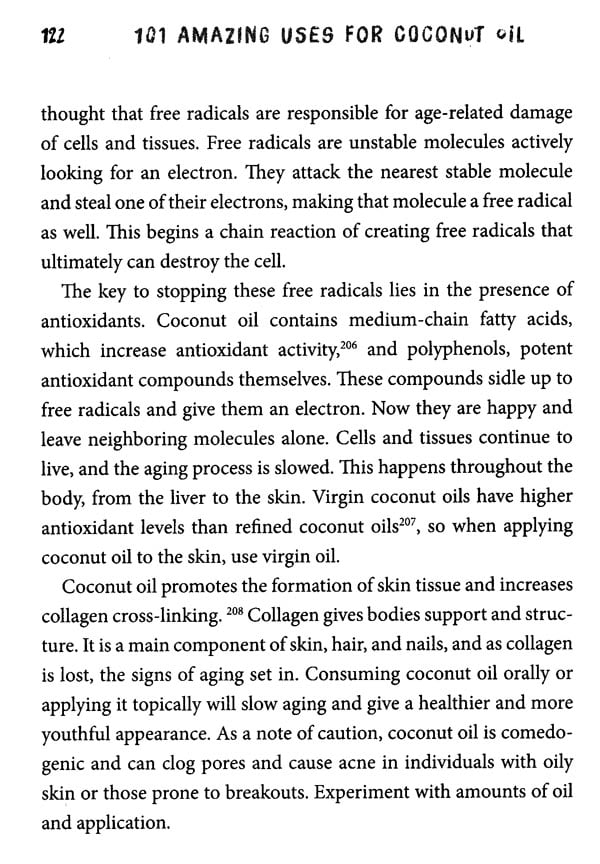
101 Amazing Uses for Coconut Oil (Decrease Wrinkles, Balance Hormones, Clean A Hairbrush, and 98 More)
Book Specification
| Item Code: | NAR006 |
| Author: | Susan Branson |
| Publisher: | Familius Publishing |
| Language: | English |
| Edition: | 2017 |
| ISBN: | 9781641700016 |
| Pages: | 162 |
| Cover: | PAPERBACK |
| Other Details | 8.50 X 6.00 inch |
| Weight | 170 gm |
Book Description
Nearly every ancient culture knew and used the amazing healing properties of essential oils. These incredible oils act as natural medicines and contain the most proven therapeutic compounds in the world. Backed by the latest research, holistic nutritional consultant Susan Branson provides 101 useful-and unexpected-reasons to add essential oils to your daily life.
SUSAN BRANSQN earned an undergraduate degree in biology from St. Francis Xavier University, then a MSc in toxicology from the University of Ottawa. From there, she worked in research: in the field, in the lab, as a writer, and as an administrator. She took time off and stayed at home after her second child was born. In addition to being a stay-at-home mom, she also took violin les-sons, photography courses, earned a diploma in writing, and ultimately became a holistic nutritional consultant. Susan is a member of CSNN's Alumni Association, Canada's leading holistic nutrition school.
Coconuts are the fruit of the coconut palm tree that measure any-where from five to ten inches across. The outer husk is made up of tough fibers and has a hairy appearance. When young, the husk is green, but it turns gray or brown as it matures. The white coconut meat inside the husk is used to make coconut oil. There are two distinct types of coconuts. One has an elongated shape so it can dig into sand, a very fibrous husk to protect the seed, and only a small amount of water to make it buoyant for ocean dispersal. Over time, human cultivation of coconuts led to the second type, which we commonly find in grocery stores today. They are round with more water and a greater meat-to-husk ratio.
Indonesia is the largest producer of coconuts today, followed by the Philippines and India. In these cultures, and many others, coconuts form a staple in the diet. The entire fruit is highly nutritious, and the coconut oil, meat, milk, and water are used for their vitamin, mineral, fiber, and fat content. Coconut oil contains poly-phenols, which give the oil its unique fragrance and sweet taste. Polyphenols are also antimicrobial and potent antioxidants. They protect the body from pathogens and prevent reactive oxygen compounds from causing extensive damage in the body.
Coconut oil is one of the most concentrated sources of energy and contains 120 calories per tablespoon. The oil is the primary source of fat in the fruit and is responsible for most of its calories. It is composed mainly of medium-chain fatty acids like lauric acid, capric acid, caprylic acid, palmitic acid, and myristic acid. These are antimicrobial and are powerful compounds that help stave off infection and disease. Medium-chain fatty acids don't act like other fatty acids. The majority of fats and oils we consume are long-chain fatty acids, like those found in meat, milk, eggs, and most vegetable oils. They are implicated in heart disease and obesity. The medium-chain fatty acids found in coconut oil do not have the same effects. In fact, they are cardioprotective and are not implicated in weight gain. These fatty acids are absorbed directly from the intestine into the blood where they are transported to the liver and used for energy. Long-chain fatty acids, on the other hand, are stored in fat tissue if they are not used immediately. No wonder coconut oil is known as the healthiest of the fats and oils!
